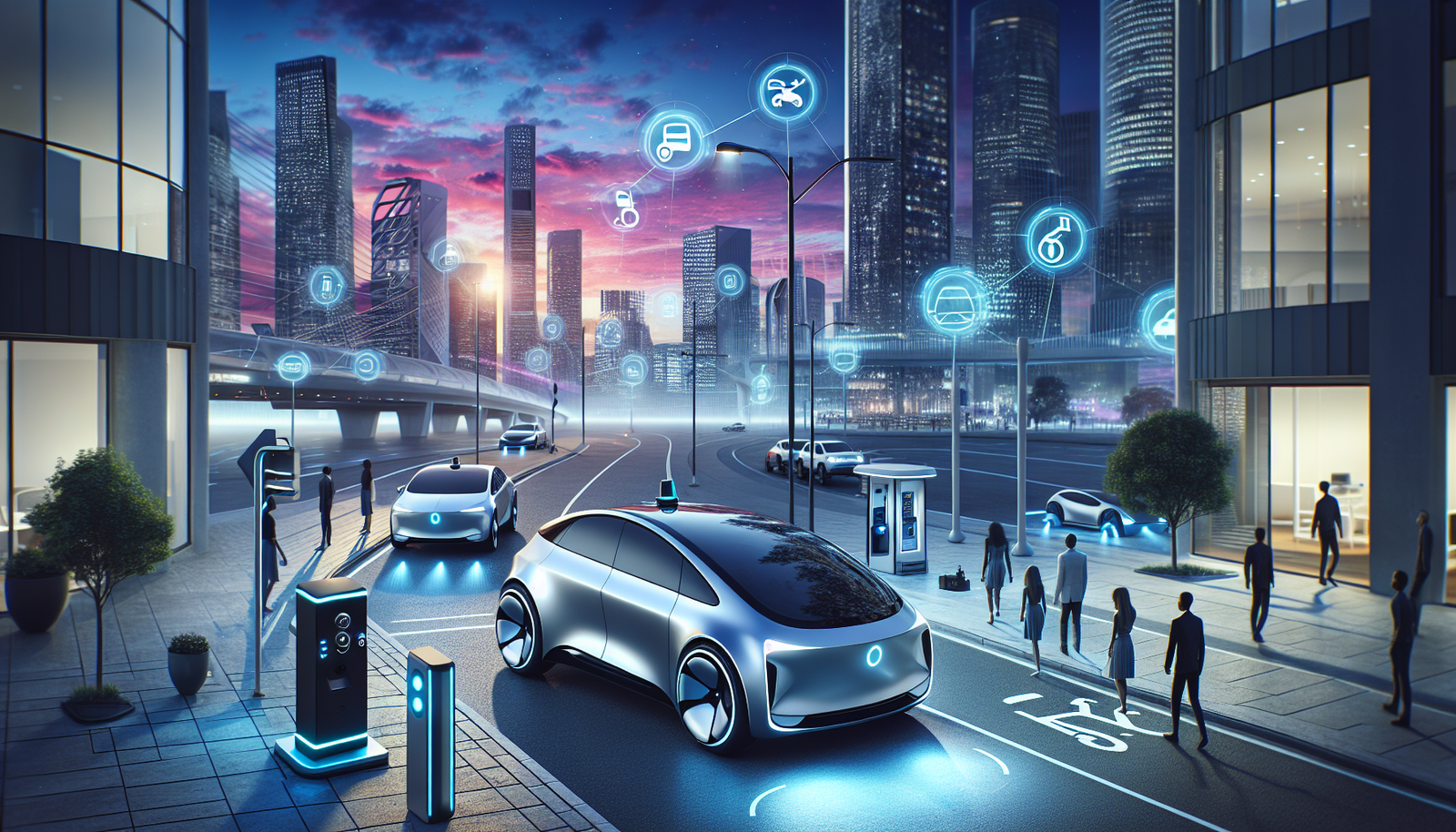Autonomous vehicles are shaping the future of mobility. Waymo aims to commercialize its innovations by providing individuals with unprecedented technology. The central issue lies in the massive adoption of autonomous transportation, allowing for a decongested and safer society. The challenge is to ensure user trust in these automated systems. The economic and social implications are immense, redefining the contemporary automotive landscape.
Waymo and the commercialization of autonomous vehicles
Waymo, a leading entity in the field of autonomous driving technologies, plans to make its vehicles available directly to consumers. This initiative reflects a significant advancement in transforming the automotive landscape, marked by the rise of cars equipped with sophisticated artificial intelligence. Tests conducted so far have demonstrated the reliability and safety of Waymo cars, making their market integration more than predictable.
Growth to expect in the market
The launch of an offering for individuals represents a key step for Waymo. This strategy aims to extend the accessibility of autonomous vehicles, typically reserved for public transport or delivery services. The company is committed to ensuring an optimal user experience, building trust among potential customers regarding these technologies. The meticulously developed business model is based on a unique value proposition, combining innovation and practicality.
Technology and safety
Waymo vehicles integrate advanced sensors and machine learning algorithms, allowing for dynamic adaptation to their environment. Recent iterations of autonomous cars have been designed to navigate effectively in extreme conditions, an advancement highlighted by the latest report on embedded technology. This adaptability is crucial for maximizing user safety while minimizing the risk of accidents.
Impact on the automotive industry
Waymo’s approach could disrupt the traditional automotive industry by challenging the modes of vehicle ownership and consumption. The emergence of autonomous vehicles and their accessibility to a broader public will encourage reflection on new mobility models. The economic implications are numerous: job creation, modifications to road infrastructures, and the development of an ecosystem around these futuristic vehicles.
Reactions from the sector
Industry players are closely watching Waymo’s initiative. Competition, driven to innovate, could lead to unprecedented collaborations between traditional companies and specialized startups. The CEO of Nvidia recently emphasized the importance of AI in this sector, reinforcing the idea that the future of automobiles depends on the adoption of artificial intelligence.
Future perspectives
Waymo plans to launch a pilot phase to test market reaction to these new vehicles. The success of this initiative will largely depend on public acceptance and user feedback. Aspects concerning safety, user interface, and after-sales service will be critical in evaluating the operation. Customer response could influence other companies to follow this bold model.
Continuous innovation
The automotive sector is undergoing rapid transformation driven by technological advancements. Waymo is establishing itself as a leader, continuing its goal of making transportation safer and more accessible. The optimization of autonomous driving technology is continually progressing, as evidenced by the renewal of artificial intelligence. This ongoing evolution is shaping the future of travel by reducing the barriers related to vehicle ownership.
Conclusion on the future of autonomous vehicles
Waymo’s journey is just beginning, and each advancement in the commercialization of its vehicles for individuals could redefine our relationship with mobility. The project embodies a vision where innovation and accessibility become essential priorities, promoting a future where technology serves humanity.
Frequently asked questions
What types of autonomous vehicles does Waymo plan to commercialize?
Waymo plans to commercialize a range of autonomous vehicles, primarily based on minivans and SUVs designed for passenger transport in urban settings.
How do Waymo’s autonomous vehicles work?
Waymo’s autonomous vehicles utilize various technologies, including sensors, cameras, and advanced software, to navigate and make real-time decisions without human intervention.
When will Waymo’s vehicles be available for sale to individuals?
Waymo has not yet announced a specific date, but it plans to begin offering its vehicles to individuals in the near future, depending on the evolution of regulations and technology.
Is it safe to use a Waymo autonomous vehicle?
Waymo emphasizes safety, with thousands of hours of testing conducted on the road and constant monitoring of its vehicles’ performance, making them safe for users.
Will there be an after-sales service for Waymo vehicle users?
Yes, Waymo plans to offer a comprehensive after-sales service, including maintenance and software updates to ensure the proper functioning of autonomous vehicles.
What are the estimated costs for acquiring a Waymo autonomous vehicle?
The exact costs have not been revealed, but they are expected to be competitive compared to traditional vehicles on the market.
Will Waymo vehicles be equipped with customization options?
Waymo envisions offering customization options, particularly regarding interior comfort and technological features to meet user needs.
How will insurance be managed for Waymo’s autonomous vehicles?
Waymo is working on partnerships with insurance companies to offer solutions tailored to users of its autonomous vehicles, ensuring adequate coverage in case of incidents.
Will Waymo’s autonomous vehicles be available in all regions?
Initially, Waymo will focus on specific urban areas where the technology can be deployed effectively, but an expansion plan is also being considered to cover other regions.
What is the main difference between public transport services and Waymo’s autonomous vehicles?
Unlike public transport services, Waymo’s autonomous vehicles aim to provide a personalized and flexible transportation solution, allowing users to travel at their convenience without the constraints of public transport schedules.






